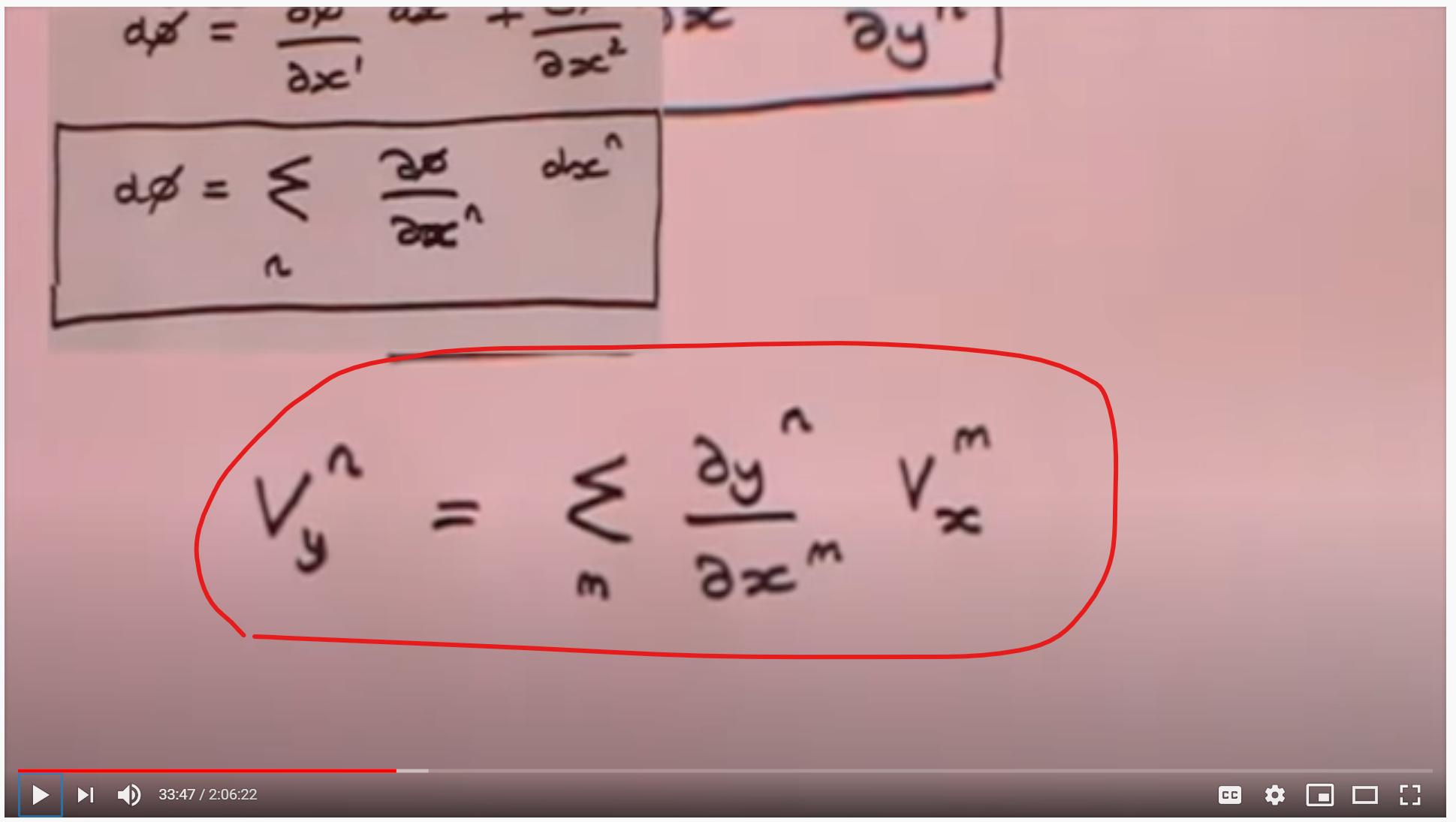I am studying the lecture on general relativity for beginners here: https://youtu.be/foRPKAKZWx8?t=1998
I was able to follow the steps up until this point (33:18 in the video). During the deriving of the metric tensor, he is talking about how the vector transforms in a change of basis. He derived a formula using a gradient formula with partial derivatives by simply replacing the gradient by a vector.
The circled formula is what he derived from the boxed formula above. As I understand, X and Y here are frames of reference (rather than coordinates). How is the partial derivative of Y with respect to X obtained?

